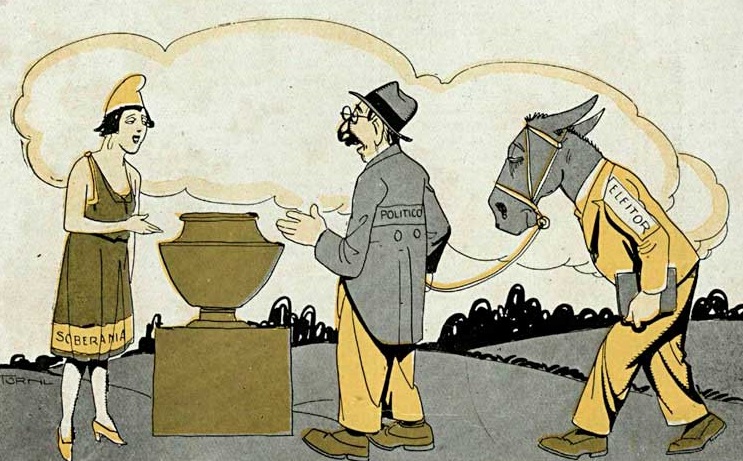The anguish of surrender: The expression of the expressionist poem
Expressionism was an artistic movement that emerged in the early 20th century, especially in Germany, and had a major impact on many forms of art, including literature. In this context, the expressionist poem stood out as an intense and emotional form of expression that conveyed the anguish and alienation of human beings in modern society.
What is Expressionism?
Expressionism was an artistic movement that developed mainly in the plastic arts, but also influenced literature, theater and music. It emerged as a reaction to the reality of the industrialized and technological society of the early 20th century, which brought with it a sense of disorientation and anguish.
Characteristics of the expressionist poem
The expressionist poem is characterized by the intense expression of the author's feelings and emotions, conveying a subjective view of the world. This form of poetry seeks to break away from traditional conventions of language and meter, seeking a more direct and powerful language to convey the anguish and uneasiness of the modern world.
Use of metaphors and symbolism
In the expressionist poem, it is common to use metaphors and symbolism to represent feelings and abstract ideas. The use of these resources creates a dense and meaningful atmosphere, allowing the reader a deep immersion in the experience described by the poet.
Break with the traditional way
The expressionist poem is also characterized by its break with the traditional form of poetry. Expressionist poets sought to write fluidly and freely, without being tied to metrics and rigid poetic structures. This freedom allowed the author to express his emotions and thoughts in a more authentic and visceral way.
Major Expressionist Poets
Several poets stood out in the expressionist movement, making significant contributions to literature. Some of the top names include:
Georg Trakl
One of the exponents of Expressionism, Georg Trakl was an Austrian poet known for his deeply melancholy and dark work. His poems explored themes such as existential anguish, alienation and death.
August Stramm
August Stramm was a German poet and playwright who also played a key role in the expressionist movement. His writing was marked by fragmentation and emotional intensity, seeking to express the tensions and contradictions of human experience.
Jakob van Hoddis
Jakob van Hoddis was a German Jewish poet who contributed significantly to the expressionist movement. His experimental and chaotic poetry reflected the confusion and instability of the modern world.
The legacy of the expressionist poem
The expressionist poem had a lasting impact on literature and forms of artistic expression in general. His emphasis on subjectivity and emotional expression influenced many later literary movements such as Surrealism and Existentialism.
Influence on contemporary literature
Even more than a century after its emergence, the expressionist poem continues to inspire contemporary poets. His intense and emotional approach connects with human sensitivity, providing a powerful voice to express the anguish and concerns of today's world.
Impact on music and theater
In addition to literature, the expressionist poem also left its mark on music and theater. Composers and playwrights were influenced by the expressionist vision, seeking to convey their ideas and emotions through music and theatrical performance.
Conclusion
The expressionist poem was an intense and emotional form of expression that arose as a reaction to the alienation and anguish of modern society. With its powerful and visceral language, the expressionist poem gave a voice to the deepest human emotions and paved the way for many art forms that followed.
FAQs
1. What is the difference between Expressionism and other literary movements?
Expressionism is distinguished from other literary movements by its emphasis on intense emotional expression and subjectivity. While Romanticism, for example, also values emotional expression, Expressionism takes this intensity to an even greater level.
2. What are the main themes addressed in the expressionist poem?
The expressionist poem tackles a wide range of themes, including existential angst, alienation, isolation, confusion, and social injustices. Expressionist poets sought to convey the tensions and contradictions of modern human experience.
3. Is the expressionist poem just a form of literary expression?
No, the expressionist poem had an impact beyond literature. It also influenced music and theater, inspiring composers and playwrights to explore intense emotional expression in their works.
4. Is the expressionist movement still relevant today?
Yes, the expressionist movement continues to be relevant in contemporary times. His intense and emotional approach still echoes in the voices of poets and artists today, providing a powerful form of expression for human feelings and emotions.
5. What are the differences between German Expressionism and expressionism in other countries?
Although German Expressionism is best known, the movement has also manifested itself in other countries such as Austria, Russia and the Netherlands. Despite cultural and contextual differences, the emphasis on emotional and subjective expression is a common element in all expressionist manifestations.




